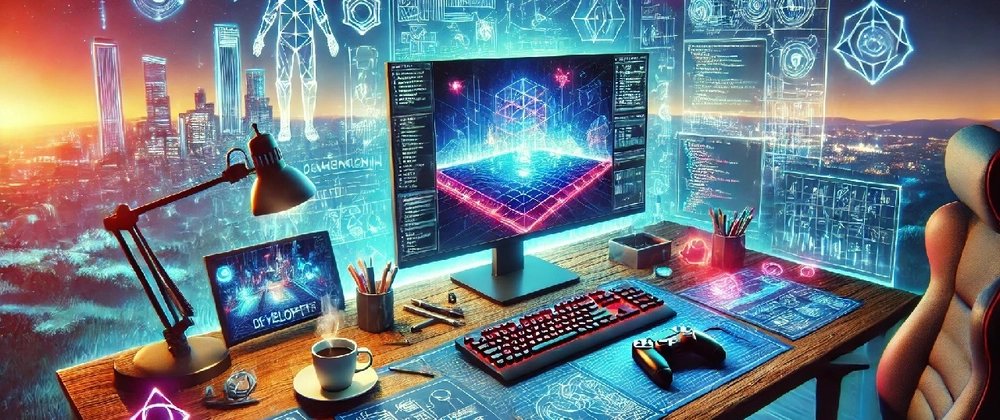Game development is an exciting and challenging journey that requires creativity, technical skills, and perseverance. Whether you're an aspiring indie developer or dreaming of working on AAA titles, mastering the fundamentals is essential.
To help you get started on the right track, here are 10 must-know game development tips that will save you time, frustration, and costly mistakes.
1. Start Small and Build Up
Many beginners dream of creating the next big open-world RPG or MMO, but starting with small, manageable projects is key to success.
✅ Why?
Helps you learn the game development pipeline without feeling overwhelmed
Builds confidence by completing projects
Allows you to experiment with mechanics before committing to a full game
🎮 Tip: Start with a simple 2D platformer or a puzzle game before diving into complex projects.
2. Choose the Right Game Engine
Your game engine is the foundation of your project. Picking the right one depends on your goals, experience level, and game type.
🔥 Popular Game Engines for Beginners:
Unity (Best for 2D & 3D, widely used in the industry)
Unreal Engine (Best for high-quality 3D games, but has a steeper learning curve)
Godot (Lightweight and open-source, great for 2D projects)
💡Tip: Stick to one engine at first and master its basics before switching.
3. Learn Programming Basics
Even if you're using a no-code tool, understanding programming fundamentals helps you solve problems faster.
🖥️ Recommended Programming Languages:
C# (Unity)
C++ (Unreal Engine)
GDScript (Godot)
Python (Prototyping & AI)
📌 Tip: Focus on learning basic concepts like variables, loops, functions, and object-oriented programming (OOP) before diving into game-specific code.
4. Prioritize Gameplay Over Graphics
Many beginners spend too much time on graphics and neglect core gameplay mechanics. A game with basic visuals but engaging mechanics will always be better than a visually stunning but boring game.
🎮 Example: "Undertale" used pixel art but became a massive hit because of its story and unique gameplay.
🔧 Tip: Focus on mechanics, controls, and game feel before worrying about high-quality assets.
5. Use Version Control (Even for Solo Projects)
Nothing is worse than losing hours of work because of a crash or a mistake. Version control tools help you track changes and prevent disasters.
🔄 Best Tools for Version Control:
Git + GitHub (Great for solo and team projects)
Plastic SCM (Popular for Unity projects)
💾 Tip: Use GitHub or Bitbucket to store your game files safely.
6. Playtest Early and Often
A common beginner mistake is waiting until the game is "done" to playtest. The earlier you test, the easier it is to fix issues and improve the player experience.
👀 How to Playtest Effectively:
Test mechanics early (before adding graphics or polish)
Get feedback from others (players notice things you might miss)
Watch testers play (don't guide them—observe how they interact with your game)
🔍 Tip: Even small changes (like adjusting movement speed) can greatly improve gameplay feel.
7. Optimize Performance from the Start
Many beginners make the mistake of ignoring optimization until it's too late. Poor performance can ruin an otherwise great game.
🚀 Performance Optimization Tips:
Avoid unnecessary physics calculations
Optimize assets (reduce texture sizes, compress sounds)
Use object pooling instead of creating/destroying objects frequently
📌 Tip: Test performance on low-end devices to ensure accessibility.
8. Learn from Existing Games
One of the best ways to become a great game developer is by studying successful games.
🕹️ How to Learn from Other Games:
Play games critically (analyze mechanics, level design, and UI)
Reverse-engineer features (how does this mechanic work?)
Watch game postmortems from developers
🎮 Example: "Celeste" has tight platforming mechanics—watch GDC talks to learn how they achieved it.
9. Join the Game Development Community
Connecting with other developers will boost your learning and open up opportunities.
🌎 Best Places to Connect:
Reddit (r/gamedev)
Discord communities
Twitter (X) / LinkedIn (Follow game developers)
Game jams (Ludum Dare, Global Game Jam)
🔗 Tip: Participate in game jams to practice rapid prototyping and teamwork!
10. Finish Games, Don’t Just Start Them
Many beginners start multiple projects but never finish. The most important skill in game development is seeing a project through to completion.
🏁 How to Stay on Track:
Set realistic goals (scope small)
Break tasks into manageable steps
Set deadlines and stick to them
🚀 Tip: Completing even a small game will teach you far more than starting 10 unfinished projects.
Final Thoughts
Game development is a journey, and every developer makes mistakes along the way. By following these 10 essential tips, you'll save yourself time, improve your skills faster, and create better games.
Game Development Tips for Faster Prototyping and Better Gameplay
🔥 Which of these tips helped you the most? Let us know in the comments!
👉 If you enjoyed this post, share it with fellow developers and subscribe for more game development insights! 🚀



Top comments (0)